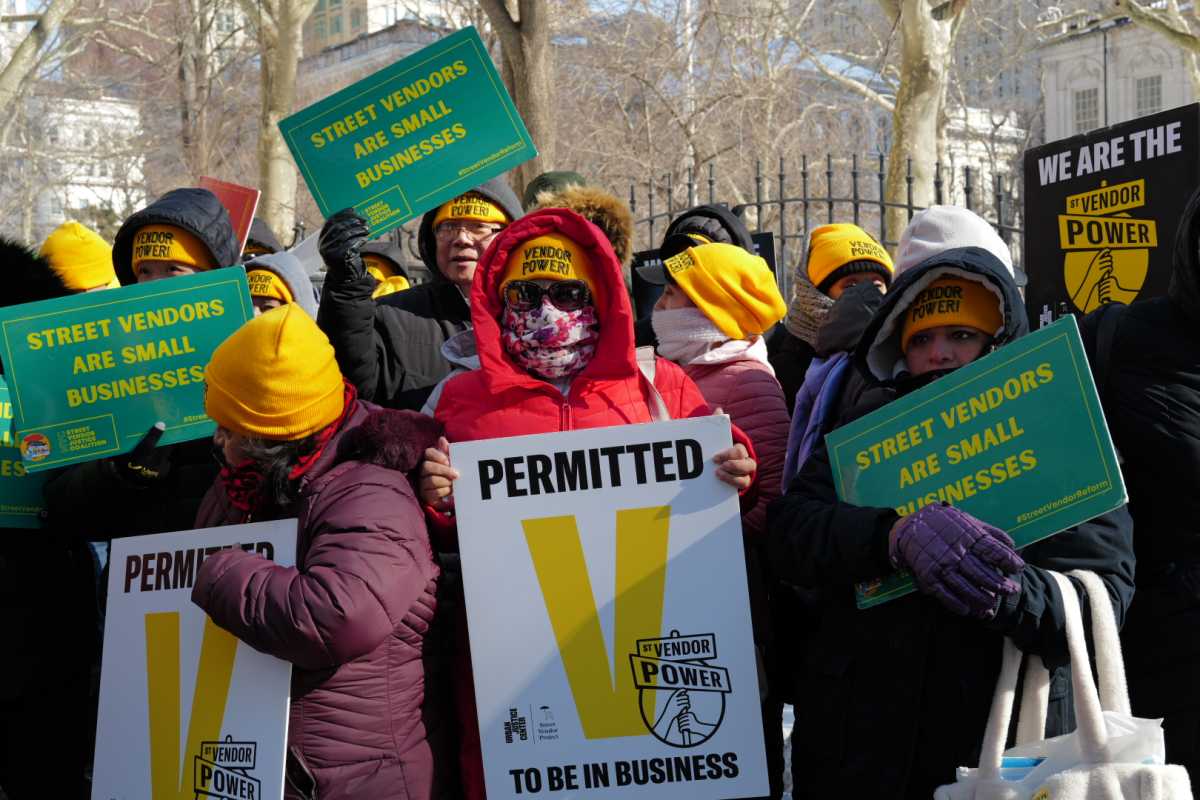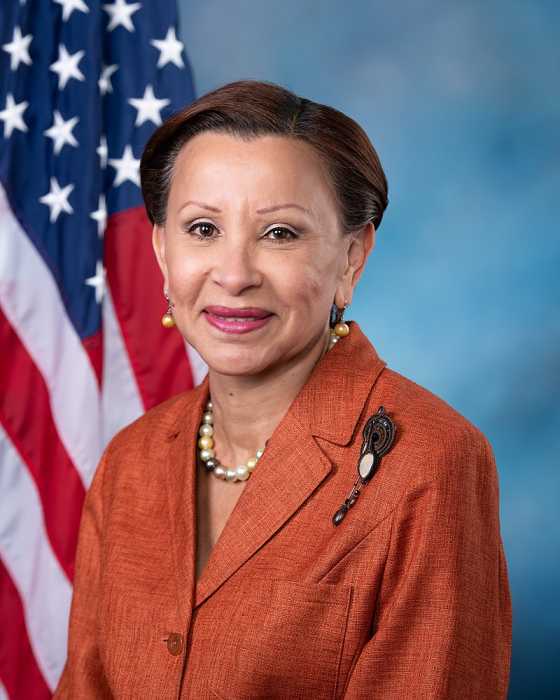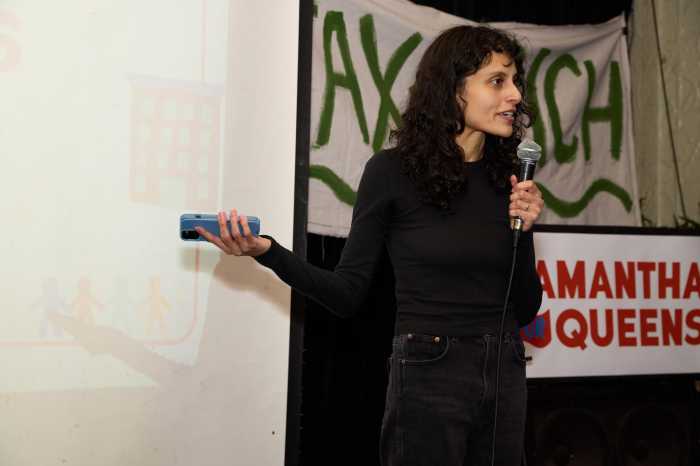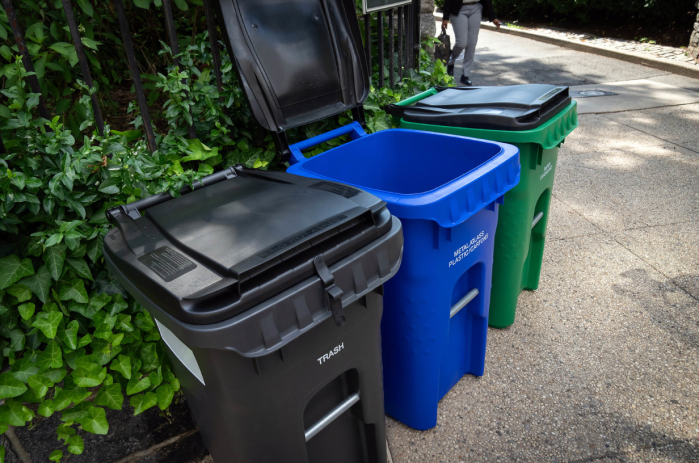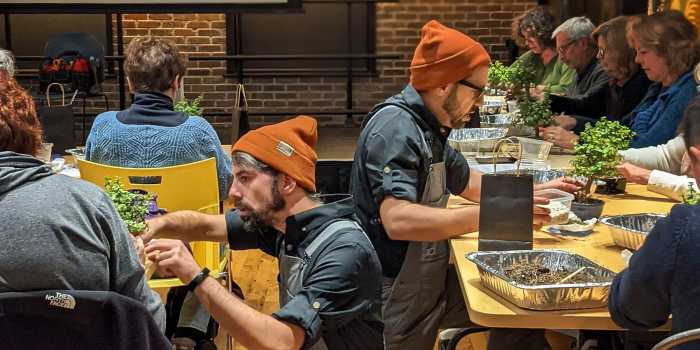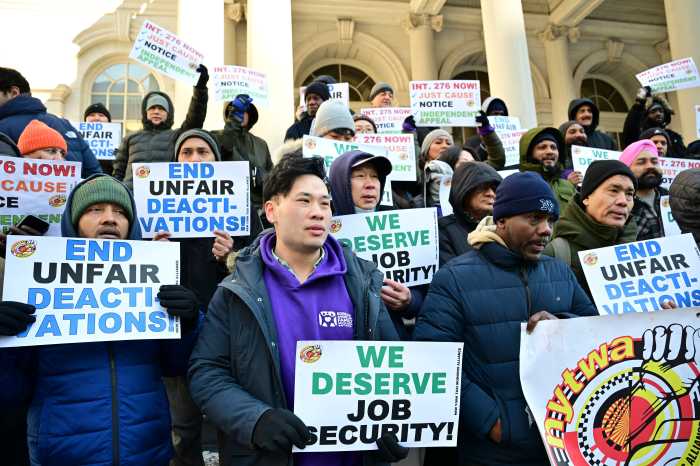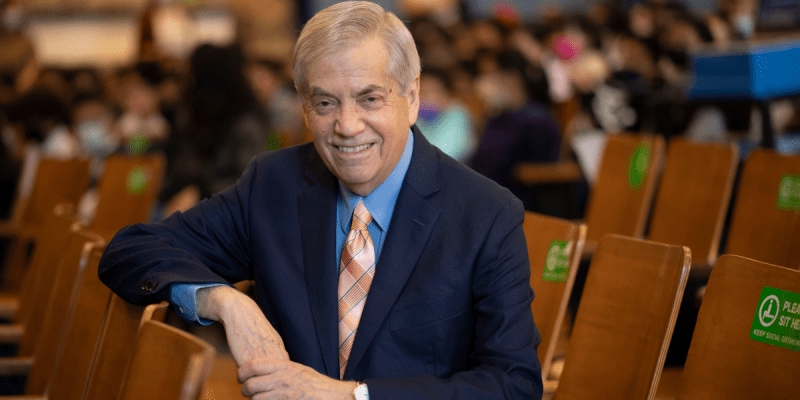By Bill Parry
Mayor Bill de Blasio announced a 14-point plan to aggressively combat violence and promote a culture of safety on Rikers Island, including five main initiatives to target inmate-on-inmate violence. The plan, made public last week at the prison, represents the administration’s continued commitment to reform Rikers Island after decades of neglect.
“For a long time, our Department of Correction and Rikers Island was looked to as a national model and then decline occurred,” de Blasio said. “Our intention is to make it a national model of what is right again, a national model of how a facility can be safe and how real rehabilitation can occur.”
Under the new policies, inmates will be prevented from having physical contact with visitors, except for a brief hug at the start and finish of a visit. Plexiglass partitions will be installed at visiting tables to deter the passing of weapons, drugs and messages.
“You’ve seen it in the movies,” de Blasio said. “It happens in real life: They pass messages, telling inmates who to attack and how to engage in the wrong kind of activity.”
The mayor’s plan will create an integrated classification and housing strategy that will ensure that the toughest and most violent inmates are housed together in a new facility called Enhanced Supervision Housing.
“Seven percent of inmates drive the majority of the violence,” de Blasio said. “The power of this unit is that it goes right at that 7 percent and treats them different, in a way that we believe will be fundamentally more effective at reducing violence.”
The mayor wants increased security camera coverage, more education opportunities that would reduce idle time and the development of a crisis intervention team that would respond more quickly to inmate-on-inmate violence.
Known as Emergency Support Teams, the new units will de-escalate conflict by intervening quickly before violence can occur. “These are peace-makers and they are special when they succeed because when they succeed, the impact on people’s lives is profound,” de Blasio said. “They are specially trained in conflict resolution, non-violent tactics, and how to work with mentally ill inmates.”
The cityDepartment of Corrections will also create and expand common-sense managerial and operational practices to strengthen performance, accountability, ownership and transparency.
Commissioner Joseph Ponte called the plan “a deep dive” long-term fixes. “It’s not going to be overnight,” Ponte said. “We do these things, it will build on all the other things that are needed in this organization.”
U.S. Rep. Gregory Meeks (D-Jamaica) called the plan “concrete action” that would change a toxic culture of violence. City Councilman Daniel Dromm (D-Jackson Heights) was pleased with the new initiative.
“Providing inmates with educational opportunities and time to be introspective will benefit everyone,” Dromm said. “Reducing idle time by offering detainees opportunities for self improvement activities is an important part of the anti-violence program.”
Reach reporter Bill Parry by e-mail at bparr

